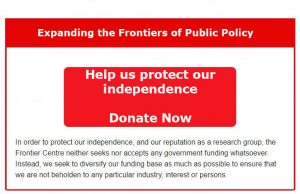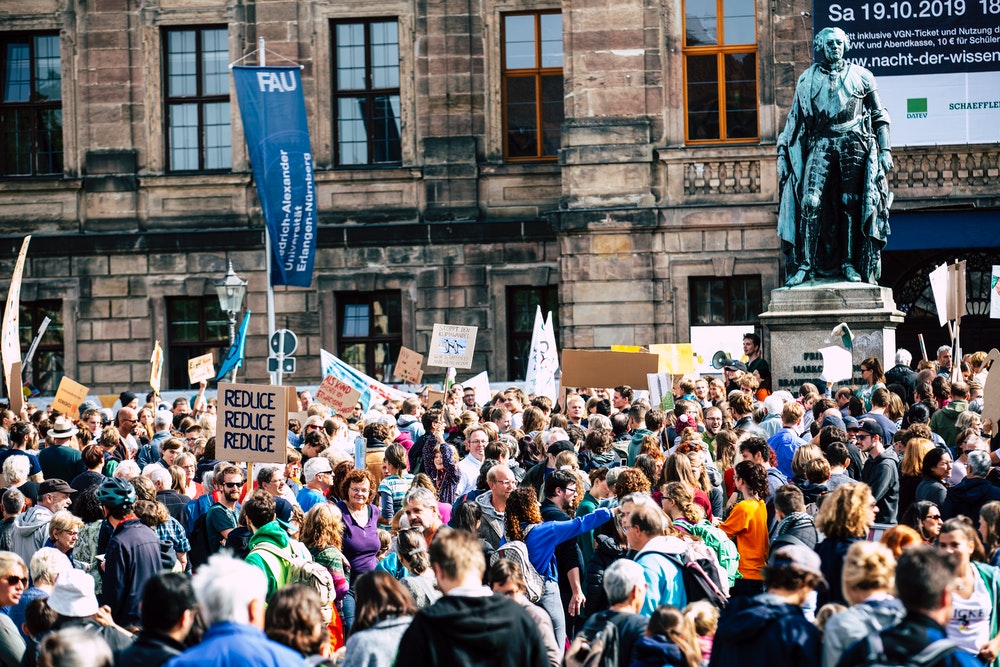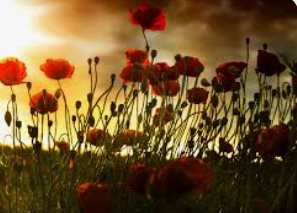It seems like everything is about justice these days. Recently, as I drove home from the store, I saw a sign for the elections here in New York from the local Democratic Party, promising “equity, equality, and justice for all.”
Beyond the obvious concerns any sane person should have about a promise of “equity,” the sign got me thinking about the absolute meaninglessness of the phrase “justice for all.”
Justice for all? Justice for what? And what, exactly, does justice mean?
It seems to be the latest easy platitude used by politicians to prove to progressive voters that they are good people—but it isn’t just the politicians using this meaningless phrase. Radical climate activist Greta Thunberg, whom we can thankfully now talk about without being accused of bullying a minor, used the phrase “climate justice” during a recent speech at the United Nations Climate Action Summit.
Thunberg was unimpressed with the fact that the world’s leaders have succumbed to a confusing collective “Build Back Better” psychosis, preaching the same line on rebuilding from the COVID-19 pandemic in a way that prematurely phases out fossil fuels at an enormous cost to average people. She had the gall to get on stage at the Youth4Climate event in Milan in September to denounce the steps taken by the world’s governments as meaningless.
“Thirty years of blah, blah, blah,” Thunberg said. “Net zero by 2025. By 2050! This is all we hear from our leaders. Words that sound great, but so far have led to no action. Our hopes and dreams drowned in their empty words and promises. Over 50 per cent of all our CO2 emissions have occurred since 1990, and a third since 2005.”
Watching the speech, there isn’t a single tremble in Thunberg’s hands. For a young woman who suffers from Asperger’s syndrome, her speech is confident and clear. Her eyes are laser-focused as she stands on the stage alongside the people who bow to her every demand while she chastises and castigates them to a roar of applause. This is a girl who doesn’t know the word “no,” and knows even the world’s most powerful people won’t dare call her out no matter what she says.
Knowing this, Thunberg said that we can no longer allow the “people in power” to “decide what hope is.”
“Hope is not passive. Hope is not blah, blah, blah. Hope is telling the truth,” she said. “We want real climate action and we want climate justice.”
If hope is telling the truth, then what is it when politicians repeat her claims and her warnings verbatim? If they are blah blah blah, then what truth, exactly, does Thunberg believe the politicians are not telling?
And what, exactly, is climate justice?
Carbon emissions in the European Union have been on a downward trend since at least 2008, dropping from 3.57 billion metric tonnes of carbon dioxide in 2008 to 2.54 billion tonnes in 2020, despite a rapid increase in population and technological advancement. And the European Union isn’t done, with a draft policy from the European Commission seen by Reuters showing that new tighter air pollution limits and advanced carbon removal certificates will be introduced next year.
The EU is working to slash net greenhouse gas emissions by more than 55 per cent in the next decade compared to 1990 levels.
In the newly independent United Kingdom, even Conservative Prime Minister Boris Johnson is banging the green drum, telling the United Nations in September that the global community must “grow up” and deal with the “climate crisis” while listening to the “warnings of scientists.”
Britain’s Climate Change Act, which was the first-ever legally binding national commitment to slash carbon emissions in the world, also requires the U.K. government to reach net zero emissions by 2050.
In Canada, the prime minister has pledged to cut national oil emissions, and Canadian banks are expecting new climate-related regulations over the next two years that may include mandatory risk disclosures, the supervision of risk management procedures and potentially even the introduction of new capital requirements. 
This October, the Global Methane Pledge Ministerial Meeting, co-chaired by the United States and European Union, saw Canada added to the list of nations to make the pledge to reduce global methane emissions by some 30 per cent under 2020 levels over the next decade.
This isn’t blah blah blah. These are dramatic, economy-shifting decisions that we are already seeing play out in real life. World leaders are doing everything Greta Thunberg and people like her say, without batting an eyelid, raising an eyebrow or asking a question.
If having the world’s leaders in the palm of one’s hands at just 18 years of age isn’t enough, then what is?
And what, at this point, does climate justice really mean?
If it was just a matter of this being a good talking point and an opportunity for Thunberg to rally the troops and hold the politicians’ feet to the fire, then she would be wise to consider the impact that forcing the politicians to do even more than they are already doing would have on the lives of most regular people.
Thunberg might be fine, but the trained seals in the audience applauding her might not be.
Jack Buckby is a research associate with the Frontier Centre for Public Policy.
Photo by Markus Spiske from Pexels.



